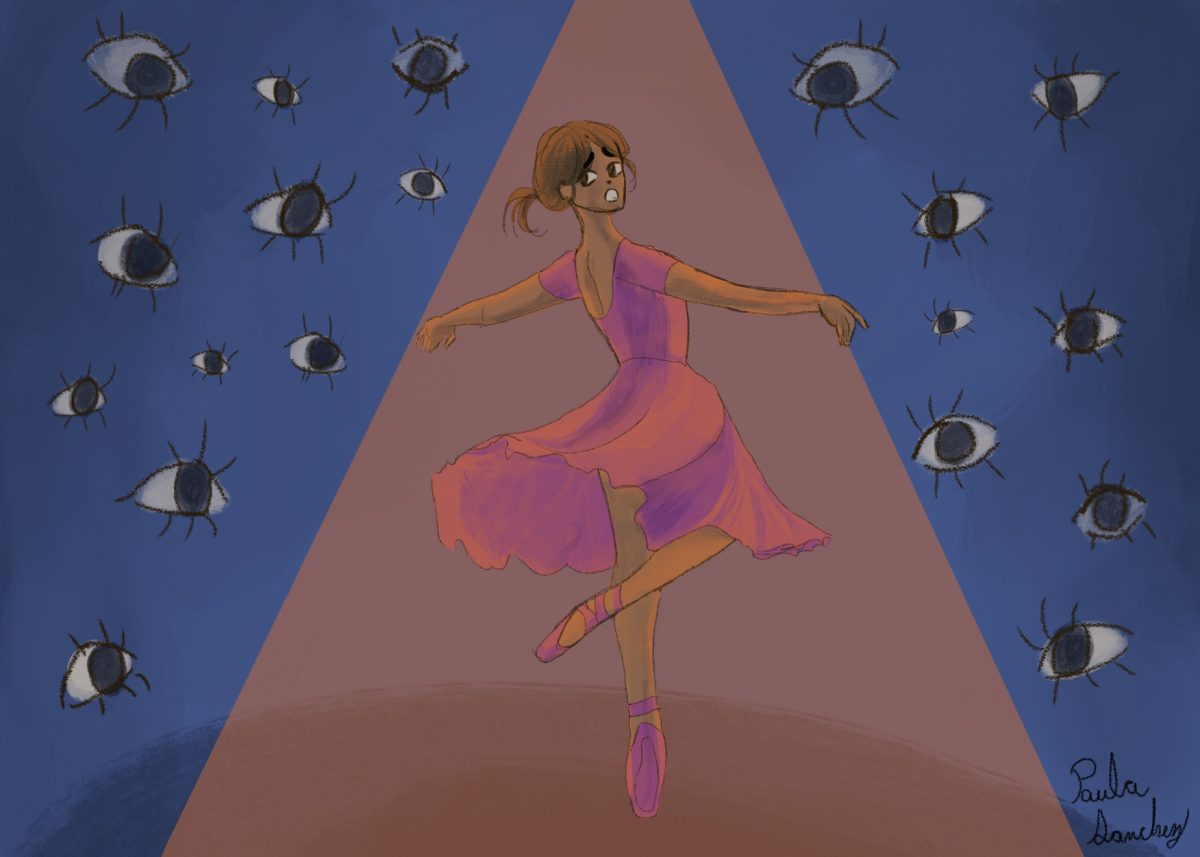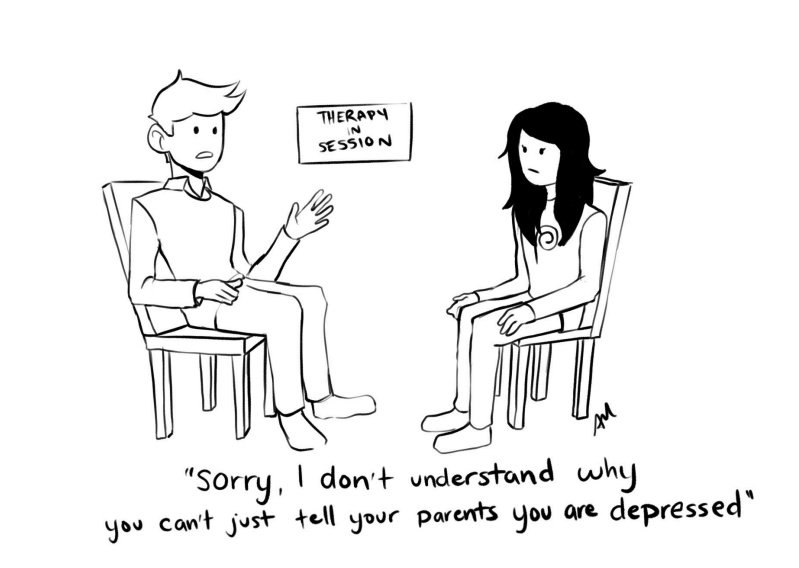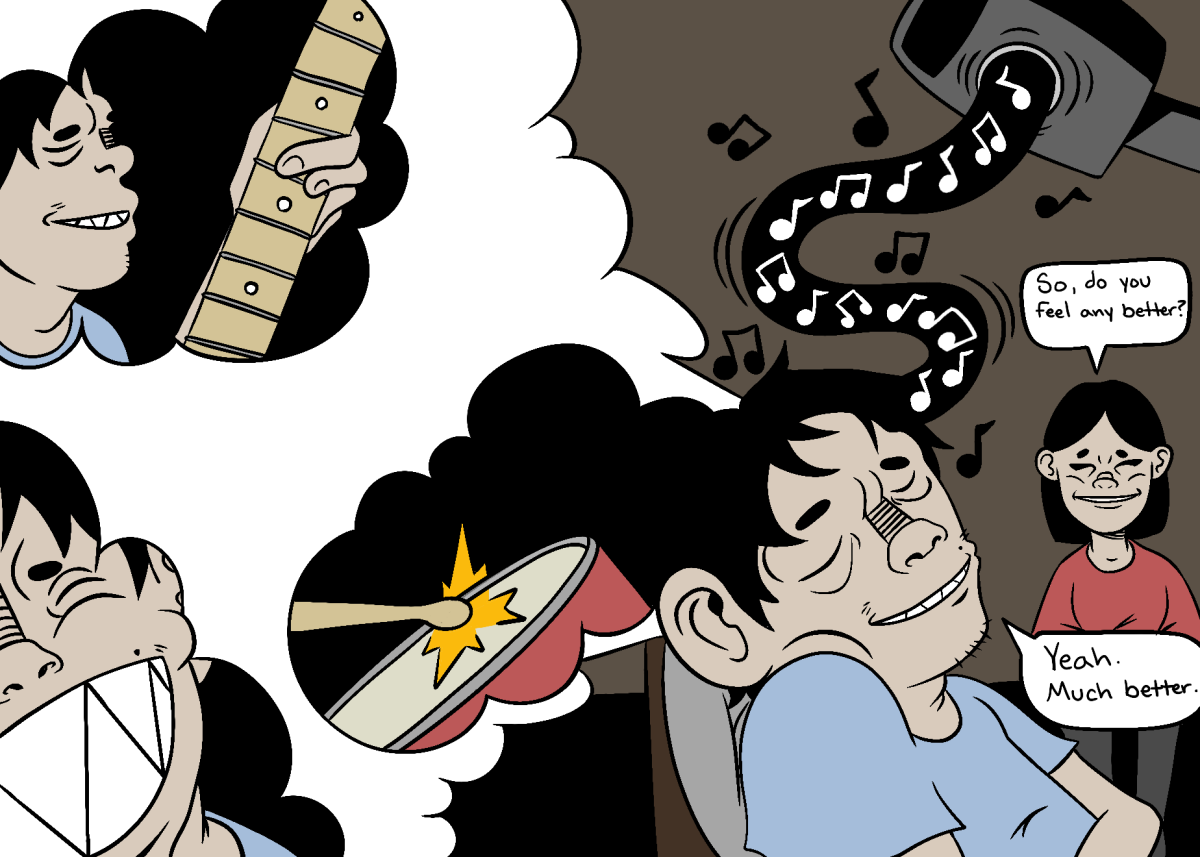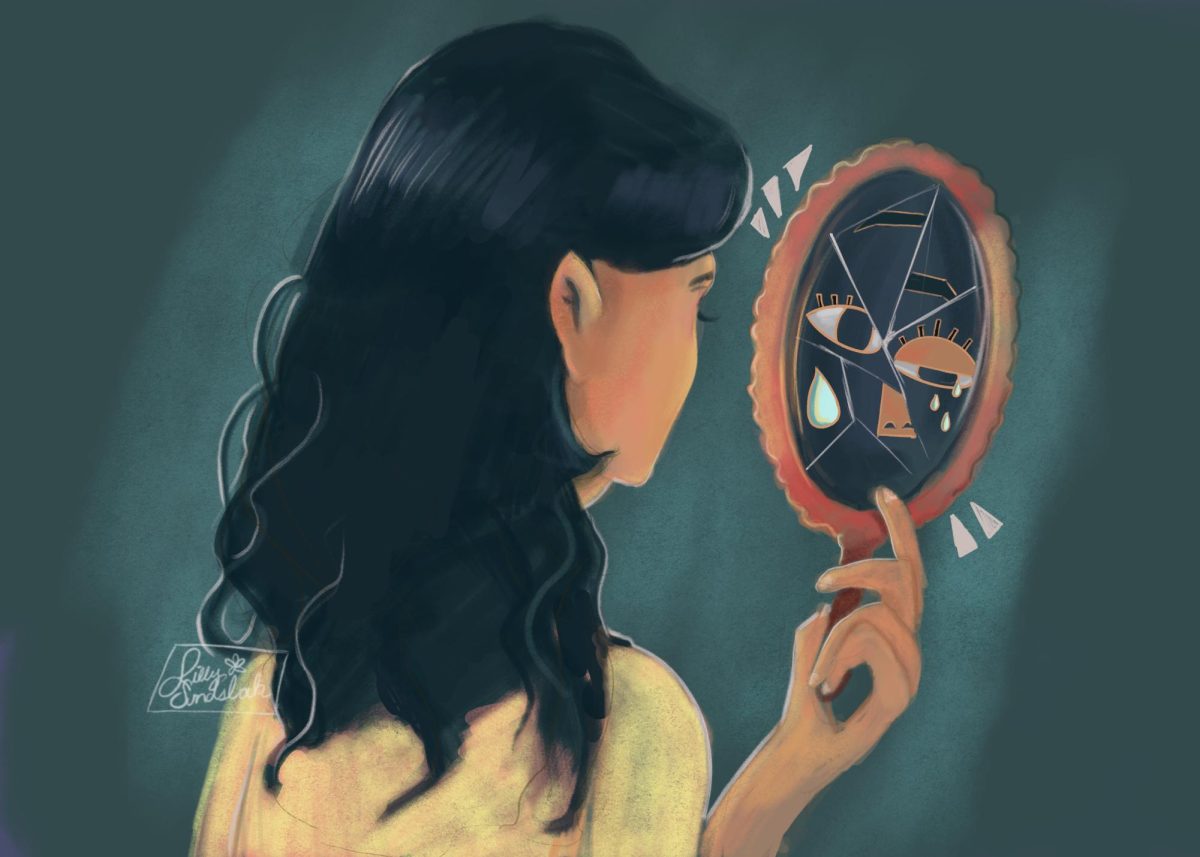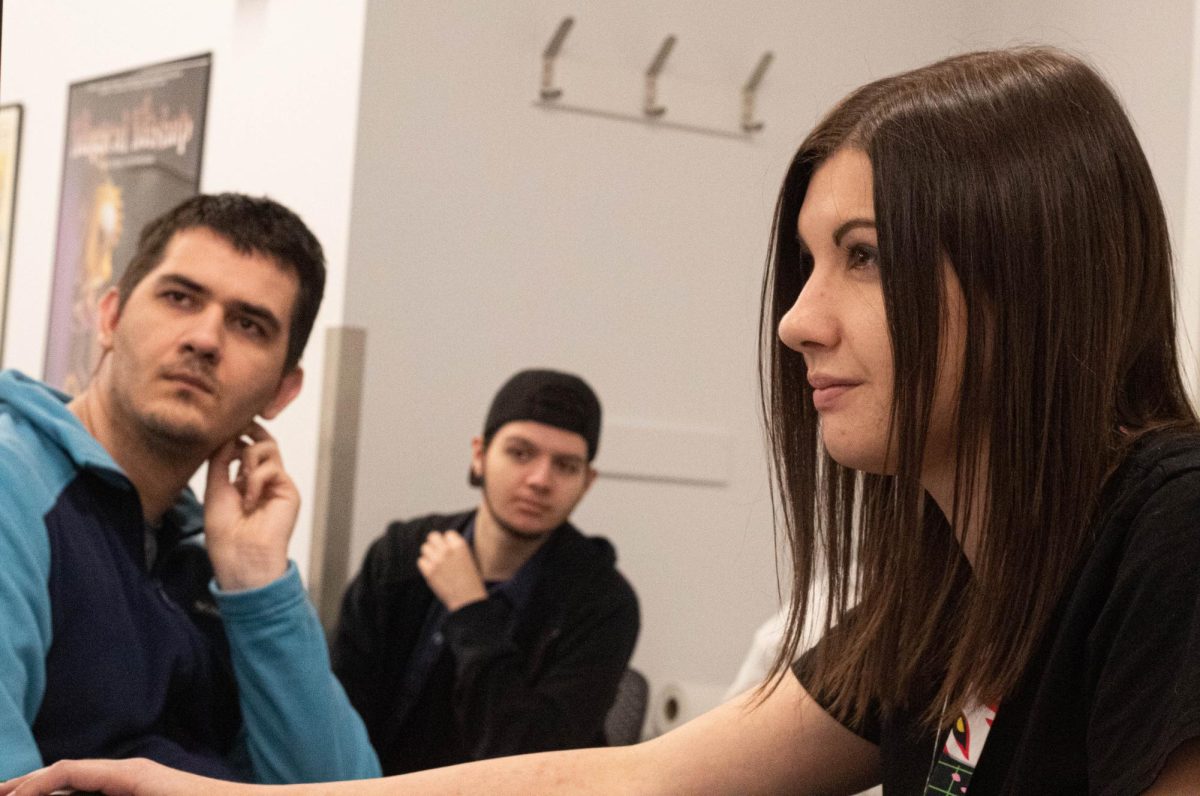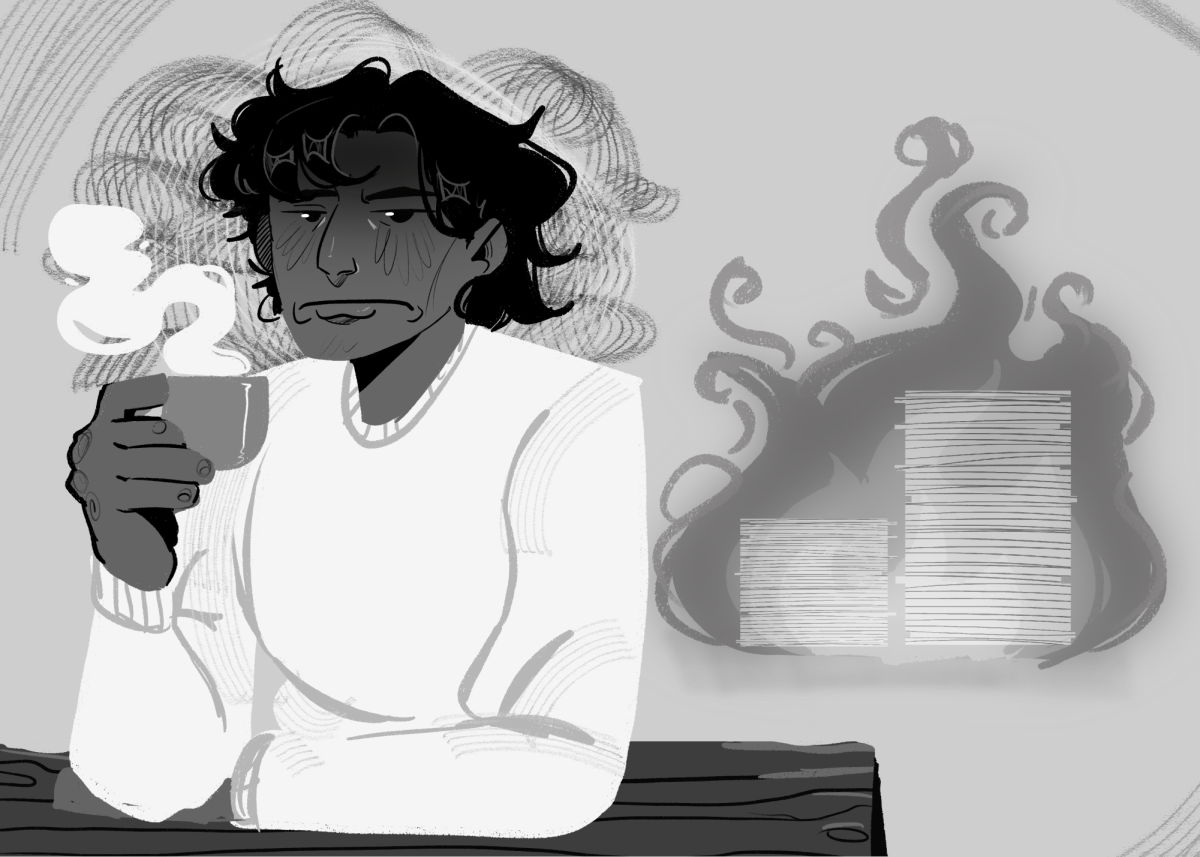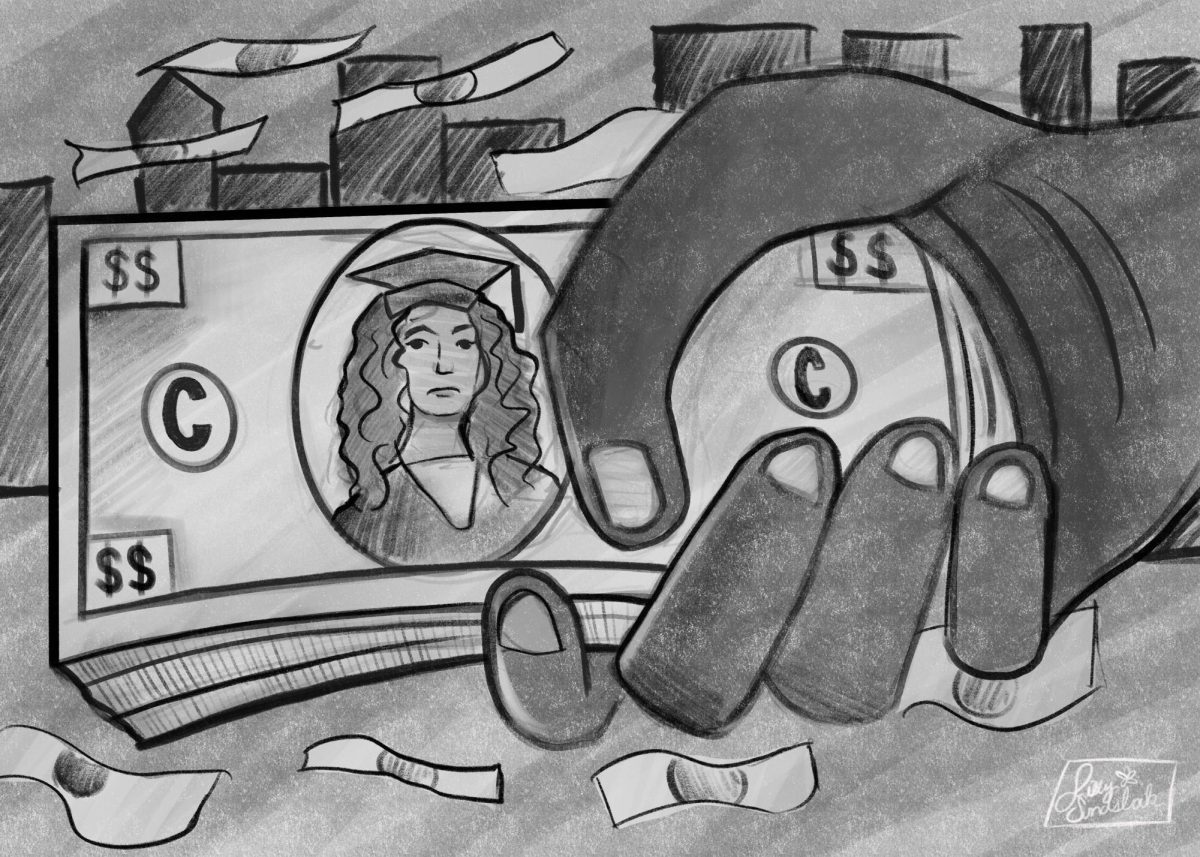MENTAL HEALTH ISSUE
Students involved with dance and theatre grow up in an environment where they have to be vulnerable when receiving criticism for their performances.
For senior theatre major Liv Gallo, this meant “a lot of self-sabotage” and “thinking you’re not good enough.”
Throughout Gallo’s nine years in theatre, the critiques and feedback started to take a toll on their mental health.
They said having to keep yourself in a vulnerable state while performing a piece you worked hard on, the critiques “stick with you.”
Because of this, Gallo said they would be hesitant to do new projects because they would be thinking about the feedback they got on a project, even from three or four years ago.
“Some feedback just sticks,” Gallo said. “You’re constantly being critiqued. You’re constantly being judged; it’s crazy.”
For senior music business major Elena Hope León, dance affected her mental health “at a very young age.”
The big picture:
Mind the Gap, founded in 2018 by a former dancer who was one of the first to write about the issue of mental health in the dance profession, compiles resources for dancers to get help.
Its founder, Kathleen McGuire, has said that relatively little data exists on dancer mental health. But the organization’s studies have found that more than three-fourths of dancers have experienced challenges with mental health and relatively few have felt comfortable enough to raise the issue with an instructor.
By the numbers:
There were 61 students in the Theatre Department and 100 students in the Dance Department in Fall 2023, according to the Office of Institutional Effectiveness.
Jessica Young, associate professor in the Dance Department, said “some students already come in having experience with therapists” and some are “currently seeing therapists.”
Starting at a dance studio at five years old, León has been the captain of the college’s dance team for the past two years. Along her journey to this role, she said dance “has its ugly sides to impact a dancer’s mental health.”
“Being a dancer requires a lot of looking at yourself in the mirror and analyzing every part of your body and the way it moves,” León said. “This made me very hyper-aware of my body at a very young age.”
By always having to stand in front of a mirror and look at herself, León said it’s been “very taxing” on her mental health and the way she perceives herself.
What they did:
Gallo transferred to Columbia their junior year after theatre professors at their former school made them feel like they “weren’t good enough.” Once they got to Columbia, professors helped Gallo change their negative mindset into a positive one.
In order to help Gallo continue auditioning for roles without their mental health being affected, “meditation, journaling and positive self-affirmations have been the most helpful,” they said.
Hearing affirmations from famous actors helped Gallo understand that they have dealt with rejection, too.
“If I’m not getting cast, it doesn’t mean I’m not good enough. It just means that I’m not what they’re looking for at that moment,” Gallo said. “And that’s okay.”
León said they’re not sure if the negative impacts dance had on her will ever go away, as she spends 30 hours a week in the dance studio, but she said she was able to find “more healthy ways to cope and heal.”
“While dance may have negatively impacted me, it is also so freeing to be able to express myself through movement in an artistic way,” León said.
León has shifted her mindset of staring at herself in the mirror from fixating on herself to now focusing on “getting lost in the craft and beauty of dance as an art.”
Between the lines:
Susan Padveen, associate chair of the Theatre Department, said she sees mental health issues rise in theatre students because of “anxiety, difficulty with communication and relationships, identity and getting overextended and then overwhelmed.”
When it comes to going to the college for help, Padveen said the college evaluates the student’s attendance and grades first to see if it may be a sign of trouble. In the meantime, Padveen said faculty can meet with students they see struggling and offer opportunities to talk, or meet up and discuss class adjustments to help them succeed.
Padveen also said students will check in with mental health counselors at the college, the office of student services, or seek mental health professionals on their own.
Young said although she has seen a rise in anxiety among dancers, people’s willingness to talk about it has risen, too.
A factor that plays into a dancer’s health may be the dance environment they grew up in, Young said. This can cause a dancer to “exacerbate feelings of depression, have anxiety, as well as, in some cases, body image issues,” she added.
Young said she believes the environment in the Dance Department focuses on embracing and welcoming dancers from diverse backgrounds. She believes it “really helps to promote that community and sense of belonging, which is really critical.”
During the current days of Gallo’s career in theatre, they said their mental health still affects them, but “not to the extent that it was affecting me before I came to Columbia.”
For León, she said dance has helped her in several ways, like how it “feels like an escape from reality” and “conveys emotions in ways that cannot be described in words.”
“I think no matter what kind of artist you are, you will always go through some kind of block,” Gallo said. “But everybody goes through the phase of ‘I don’t think I can do this,’ and then there’s that one thing that makes them believe that they can.”
Copy edited by Myranda Diaz


